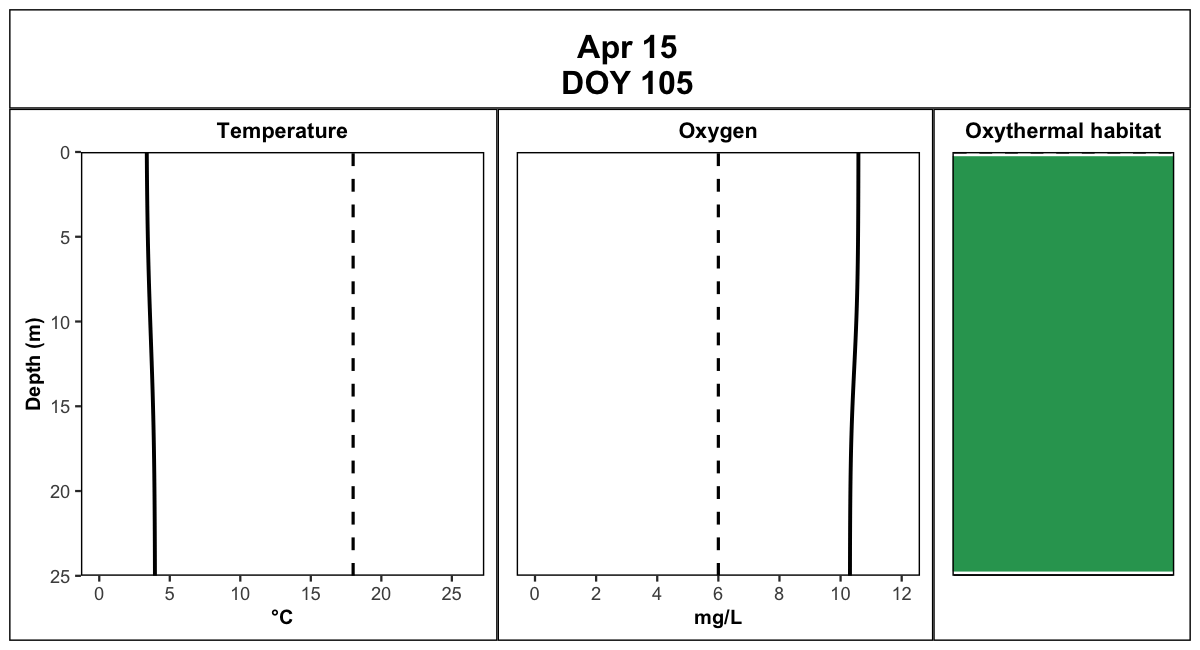

Research
Turning Ecological Theory into Action for more Sustainable Freshwater Ecosystems, Fisheries and Aquaculture

1. Introduced and invasive species as governors of food webs and fisheries
Invasive and introduced species are a reality in most freshwater ecosystems. How do fisheries and native ecosystems respond? And can we find ways to manage them (in a cost-effective manner)? In collaboration with others I have focused on exploring questions related to address these challenges, with some surprising results like changes in biomass are not always related to changes in production, responses to management activities can take decades to understand, and sometimes our management activities can push managed species to adapt.
Relevant recent publications:
Detmer, T. M., Airey, M. E., Jirka, K. J., Randall, E. A., Zarri, L., McIntyre, P. B., & Kraft, C. E. (2025). Community‐wide transient dynamics of lake fish populations in response to two decades of suppressing an introduced predator. Journal of Applied Ecology, 62(6), 1406-1420.
Detmer, T. M., Almeida, L. Z., Hill, A. A., Ramsey, J. W., St. John, C. A., Zarri, L., ... & Kraft, C. E. (2025). Long-term removal increases risk aversion of a widely introduced predatory fish. Biological Invasions, 27(6), 146.
Zarri, L. J., Kraft, C. E., McIntyre, P. B., Baetscher, D. S., ... & Therkildsen, N. O. (2025). Eradication efforts catalyze rapid evolution in an invasive predatory fish. Proceedings of the National Academy of Sciences, 122(24), e2424067122.
Detmer, T.M. and W.M. Lewis. 2019. Influences of fish on food web structure and function in mountain lakes. Freshwater Biology 64:1572-1583.
Detmer, T.M., McCutchan, J.H., and W.M. Lewis. 2017. Predator driven changes in prey size distribution stabilize secondary production in lacustrine food webs. Limnology and Oceanography, 62:592-605.
*Featured in CIRES Spheres 2016.
Detmer, T.M. and D.H. Wahl. 2019. Trophic cascade strength is influenced by size frequency distribution of primary consumers and size-selective predation: examined with mesocosms and modeling. Aquatic Sciences, 81:1-11.


Ludox separation of primary producer material from aquatic and terrestrial from high elevation lakes for stable isotopes used in food web modeling.
See Detmer & Lewis 2019, Freshwater Biology.
2. Aquascapes as drivers of fisheries and freshwater ecosystems
The manner organisms are distributed in a landscape is strongly influenced by encounter rates, which ultimately influence trophic dynamics, ecosystem function and anglers interact with fisheries. I am interested in exploring what features in aquatic ecosystems, such as arrangement and density of habitat and landscape of fear, drive the distribution of organism and how these influence ecosystem features like ecotrophic efficiency and the flow of organic matter.
Relevant recent publications:
Jane, S. F., Detmer, T. M., Larrick, S. L., Rose, K. C., Randall, E. A., Jirka, K. J., & McIntyre, P. B. (2024). Concurrent warming and browning eliminate cold-water fish habitat in many temperate lakes. Proceedings of the National Academy of Sciences, 121(2), e2306906120.
Detmer, T.M., Roberts, H., Broadway, K., Parkos, J. and D.H. Wahl. 2022. Testing theoretical frameworks of zooplankton longitudinal distribution in a large reservoir. Journal of Plankton Research 44, 970-983.
Wilson, J.C., White, D.P., Detmer, T.M. and D.H. Wahl. 2021. Behavioral response of juvenile silver and bighead carp to conspecific and heterospecific alarm cues. Biological Invasions 23: 2233-2248.
Detmer, T.M., Diana, M.J., and D.H. Wahl. 2019. Season and presence of Gizzard Shad influence horizontal spatial distribution of zooplankton in reservoirs of the Midwestern United States. Freshwater Sciences, 38:183-192.
Detmer, T.M., McCutchan, J.H., and W.M. Lewis. 2017. Trophic interactions across lake-stream boundaries in mountain lakes. Inland Waters, 7:440-448.


3. Climate change and an ecosystem approach to fisheries management
Climate change will fundamentally change aquatic ecosystem function. With collaborators I am exploring questions on how climate change will alter oxythermal environments and fisheries, whether and how stocked fish might help improve climate resilience, and how anglers will respond at local and landscape levels. Additionally, I am interested in understanding how this will alter the growth and accumulation of toxins, such as mercury in harvest fisheries.
Relevant recent publications (several in development):
Jane, S.F., Detmer, T.M., Larrick, S.L., Rose, K.C., Randall, E.A., Jirka, K.J., & McIntyre, P.B. 2024. Concurrent warming and browning eliminate cold-water fish habitat in many temperate lakes. Proceedings of the National Academy of Sciences, 121(2), e2306906120.
*Featured in several news outlets
Jane, S. F., Heilpern, S. A., Brenna, J. T., Detmer, T. M., Driscoll, C. T., Eagles-Smith, C. A., ... & McIntyre, P. B. (2025). Climate-Driven Deoxygenation of Lakes Alters the Nutrient-Toxin Profile of a Food Fish. Environmental Science & Technology, 59(19), 9486-9496.
Detmer, T.M., Parkos, J.J., and D.H. Wahl. 2022. Long-term data show effects of atmospheric temperature anomaly and reservoir size on water temperature, thermal structure, and dissolved oxygen. Aquatic Sciences 84:1-13.





4. Coupled human and natural systems (CHaNS) focused fisheries and freshwater ecosystem management
Just as fisheries do not operate independently of aquatic ecosystems, effective fisheries and aquatic ecosystem management are not inseparable from human behavior. My interests are focused on two areas. 1) Understanding how angling has changed through time and in response to changes in conditions. 2) Exploring roles of fisheries in water quality management and vice-a-versa.
Relevant recent publications:
Detmer, T.M., Broadway, K.J., Parkos, J.J., Diana, M.J. and D.H. Wahl. 2020. Fishing efficiency of competitive largemouth bass tournament anglers has increased since early 21st century. Fisheries Management and Ecology, 27:540-543.
McArtor, J.D., Detmer, T.M., Porreca, A.P, Parkos, J.J., and D.H. Wahl. 2021. Do freshwater macroinvertebrates select for different substrates used in fisheries habitat enhancement. Transactions of the Illinois State Academy of Science, 114, 1-6.
Detmer, T.M., Oonk, D.J., Smith, L., and J.G. Berggren. 2017. Backcountry Limnology: Engaging citizen scientists to collect data on high country lakes, reservoirs, and ponds to develop a database for climate change research. Limnology and Oceanography Bulletin, 26:77-78.
*Invited presentation on this project in a special session on global outreach in limnology at the annual meeting for the Association for the Sciences of Limnology and Oceanography in 2019.



